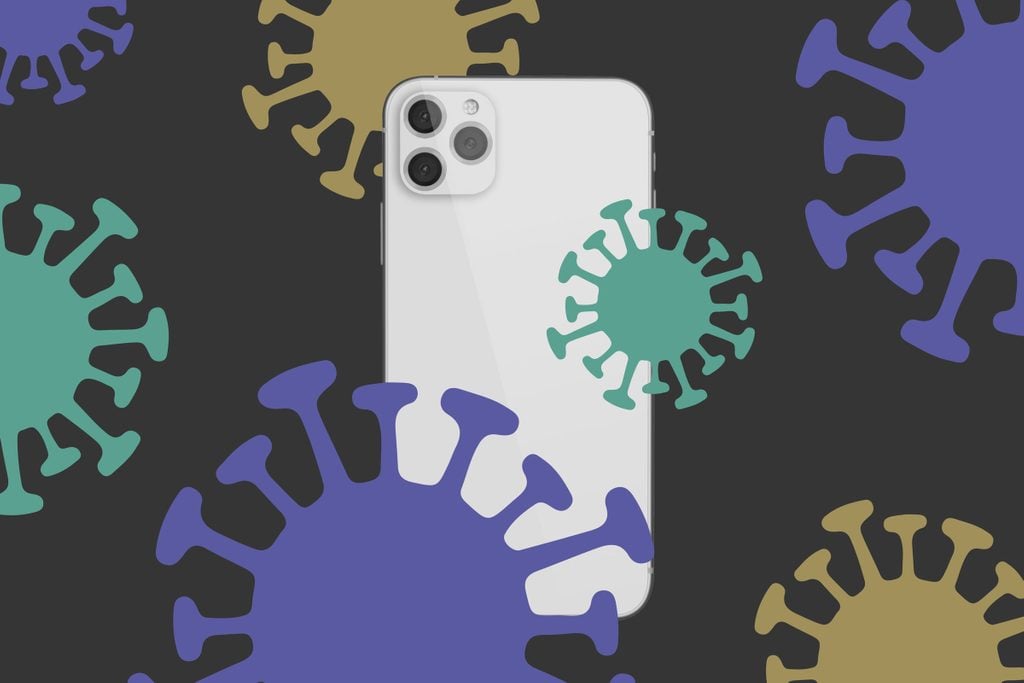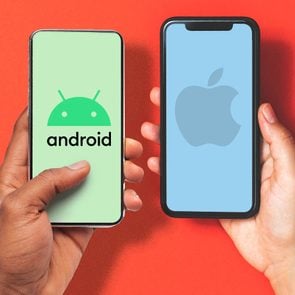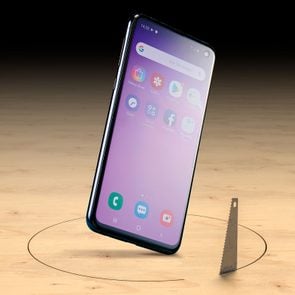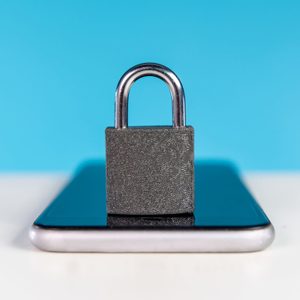iPhone Security: Does an iPhone Need Antivirus Software?
Updated: May 10, 2023

Apps promise to protect your phone from viruses and malware, but with built-in iPhone security measures, you may not need them.
Smartphones have become integral to our lives, helping us to keep track of appointments, conduct our banking, send and receive emails, take and store photos, listen to music and, oh yeah, talk to people. Many of us would be devastated if anything happened to our phones that could harm or steal that data. That explains why so many mobile apps are now available for virus protection and security. Most of them promise to scan your phone for malware, and then isolate and kill any viruses they find. Many also claim to check for weak or compromised passwords, help you locate your device if it’s lost or stolen, block malicious websites, and more.
Fortunately for Apple iPhone users, most of those apps are unnecessary. While iPhones can get viruses, they’re exceedingly rare. That’s because of the Apple iPhone security protections puts in place.
Antivirus for iPhone
Apps that claim to scan your phone for viruses will not work on iPhones. That’s because Apple’s operating system, called iOS, doesn’t permit any one app to see what any other app is doing, or even to “know” of another app’s existence. That means you don’t have to worry about your fitness app ever gaining access to your banking records. The only way one app can ever communicate with another is if you enable permissions, like allowing a journaling app to access your photos, for example. With this “sandboxed” approach, there’s no way a security app could possibly scan other apps on your phone for malware.
Apple takes additional measures to protect users from adware, spyware, and other types of malware lurking in third-party apps. “Apple designed their operating system to restrict the applications a user can place on their phone,” says Tom Kirkham, founder and CEO of IronTech Security. Users can only install applications downloaded from the official App Store, and Apple closely reviews each app for malware before approving it. One of the few ways a malicious app could be installed is if a user jailbreaks their iPhone, a practice most experts caution against.
And for every other security feature included in these after-market apps, an equal or better feature is already built into the iPhone, most experts believe. “In the end, I don’t think it’s worth putting antivirus software on an iPhone,” Kirkham says. You may want to consider these secure messaging apps for iPhones.
iPhone security
The iPhone has an answer to almost every feature included in third-party security apps. In some instances, you may need to adjust your settings to make sure they’re turned on.
Antitheft. Apple iPhones are connected to iCloud, which features a built-in device locator called Find My. Once Find My is activated, users can see the location of each of their Apple devices on a map. Some third-party apps boast about their ability to help you remotely delete all the data from your device if it is stolen, but Find My already includes this protection. To make sure it’s enabled, go to Settings, tap your name, then Find My. Then click the toggle switch to “On.” Here’s everything you should do in the event your iPhone is lost or stolen.
Malicious website checker. The threat of malicious websites trying to steal your data, especially when using open Wi-Fi networks, is real. But if you have an iPhone, you don’t need to install a security app to protect against such sites. Safari, the iPhone’s built-in browser, has a warning that pops up if you’ve landed on a website trying to run a “man-in-the-middle,” a type of phishing scam in which a malicious website attempts to impersonate a legitimate one and steal your data. To enable the feature: Go to Settings —> Safari —> Privacy & Security. Toggle on the “Fraudulent Website Warning” button.
Password checker. Some apps promise to alert you if any of your passwords have been compromised in a data breach. But you don’t need an app to tell you that; simply go to Have I Been Pwned, and enter your email address; the free service will let you know if any passwords linked to that email address have been leaked.
Media lockdown. Some security apps help users lock their photos and videos away from prying eyes by using a six-digit PIN. But most iPhones are locked anyway, either with a PIN, Touch ID, and/or Face ID. And if they’re not, they should be. “Face ID is around 20 times more secure than fingerprint ID, which is plenty secure on its own,” Kirkham says. “If you’re using an older iPhone that doesn’t have Face ID or Touch ID, use a six-digit passcode.” Stay away from birthdays or anything easy to guess, he says.
Unsecured Wi-Fi checker. You don’t need an app to do this. “Apple does a great job of warning a person before they connect to a Wi-Fi network that is unsecured,” Kirkham says. “There will be a little phrase under the network name that says ‘unsecured network.’ Secure networks will have a padlock icon by their name, as well, whereas unsecured ones don’t.
Standalone apps
While iPhones don’t need bundled antivirus or security apps, there are two categories of standalone apps that you should have on your phone: a password manager and a VPN.
A password manager generates secure passwords for you, so you don’t have to think up yet another eight-digit sequence of uppercase and lowercase letters, numbers, and special symbols. Then it stores all the passwords for you, so you can free up space in the operating system known as your brain. You just need to remember one master password to log into the app. Apple includes a password manager called Keychain in all its devices, but there is one scenario where Kirkham recommends using a third-party app. “If you happen to have an iPhone but use a Windows computer, then you might want to use another password manager, like 1Password or LastPass because [they’re] multiplatform,” Kirkham says.
A VPN, or virtual private network, creates a secure connection between your phone and the Internet and encrypts any data that you send. Kirkham strongly recommends using VPNs when using their devices on public Wi-Fi networks. Kirkham suggests NordVPN and Private Internet Access as two products to consider.
iPhone settings
In addition to the settings noted above, iPhone users can adjust a couple more settings to ensure they’re keeping their phones as secure as possible.
Install software updates. Whenever Apple releases a new iOS update, it often patches security holes that hackers have discovered. To make sure Apple iOS updates are installed automatically, go to Settings —> General —> Software Update and turn on automatic updates.
Turn on USB restricted mode. This is a newer setting that users may be unaware of. It prevents a kind of attack called “juice jacking,” in which data can be stolen via your phone’s USB port when you plug your device into a public charger. To turn on USB restricted mode, go to Settings —> Touch ID & Passcode (or Face ID if your phone has that), then enter your passcode. Scroll down to “USB Accessories” and toggle the switch on.
Find out all the iPhone privacy settings you should check right now.
Source:
- Tom Kirkham, founder and CEO of IronTech Security



